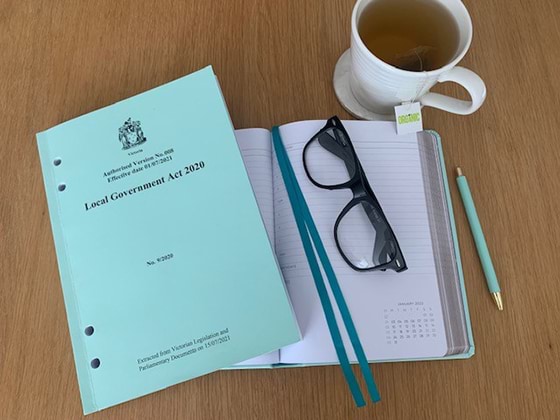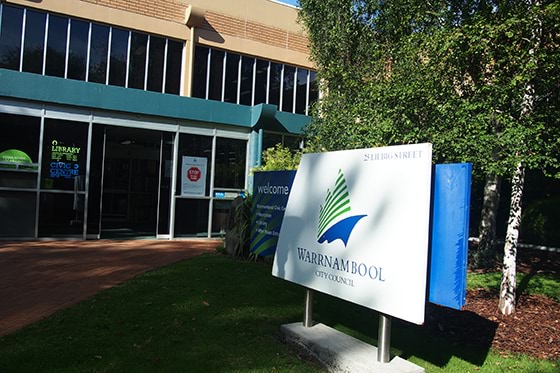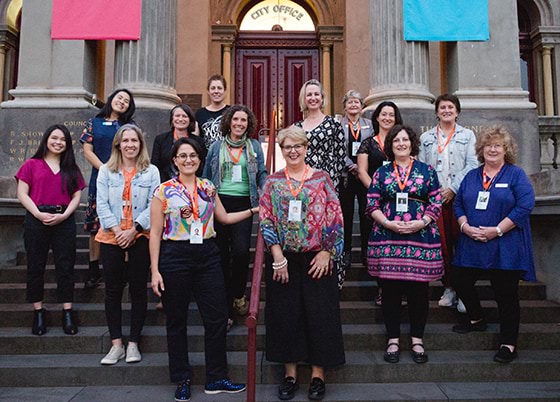- Date:
- 26 Apr 2022
Message from the Chief Municipal Inspector
Welcome to the autumn edition of our integrity matters newsletter.
As the weather starts to cool, my team at the Inspectorate have been busy – both on the road and in the office. We have started to travel to visit councils in person more regularly, collecting information, interviewing face-to-face and giving presentations. The presentations provide a fantastic opportunity for councils to ask questions about compliance with the Local Government Act 2020, good governance and integrity.
Back in the office, we have launched a major review of governance documentation required to be created and updated under the 2020 Act. We requested documents from all 79 councils as part of an own-motion review.
We have also been working through some outstanding election matters. Our review of campaign donation returns during the 2020 general council elections led to issuing 108 official warnings. Overall we found transparency had improved compared to the last election period in 2016.
Meanwhile, our investigation of 216 ballot papers lodged during the Melbourne City Council election in 2020 resulted in issuing 20 real estate agents with official warnings. The ballots did not affect the election outcome but shows more work needs to be done to inform real estate agents of Victoria’s electoral laws.
The Independent Broad-based Anti-corruption Commission is seeking input for a report on the perceptions of corruption. And finally, I will speak at the Australian Local Government Women’s Association Victorian annual conference in June.
I look forward to meeting more of you online or in person soon.
Michael Stefanovic AM
Chief Municipal Inspector
Major review of council policies kicks off
The Inspectorate has started a wide-ranging governance review of selected council policies which are required under the Local Government Act 2020. It is our first review of policy documents which the new Act required councils to create or amend.
While we appreciate that the past two years have been particularly challenging for councils, it remains imperative that all key governance requirements are met.
We requested a range of policies and governance documents from all 79 councils and despite the challenges thrown up by the pandemic, all but a few councils have supplied the documentation. We would like to thank councils for their prompt response to our request.
The aim of the review is to test the level of strict compliance to the timely adoption of required policies by councils. However, we will also be benchmarking the quality of the documentation, with a view to highlighting better practice across the sector.
Once we complete the review, we publish the general findings, along with best practice examples. We will also work with individual councils where a specific need is identified.
This review is one of our topic or theme-based examinations which aim to test council compliance and improve compliance across the sector. It also allows us to continue to build our resource capacity and provide councils with ongoing improvement opportunities.
These types of examinations are typically based on findings of our investigations, council intelligence or in some cases information from the public which identify systemic issues across the sector. We also respond to legislative change – which is the basis of this review.
Our findings, including any recommendations, are made known to the sector through our reports, newsletters, or in a small number of cases, directly back to an individual council.
Our recommendations may also be directed to council peak bodies, Local Government Victoria or the Victorian Government.
Inspectorate hits the road again
Inspectorate staff have hit the road again after two years interruptions as a result of movement restrictions due to the pandemic. Our investigators are visiting councils to conduct in-person interviews and collect information for investigations.
In March, we visited Warrnambool City Council and Mildura Rural City Council as part of our ongoing reviews into the two councils. We also visited Gannawarra Shire Council to introduce ourselves and give a briefing on our role in improving council compliance with the Local Government Act 2020.
We have more trips planned for April and May to visit the north of the state.
CMI Michael Stefanovic said:
“Our usual program of council visits was impacted by travel restrictions for the last two years. This work is vital and I am delighted that my team is able to get back on the road and meet council staff and councillors face-to-face again.
“Visiting councils allows us to get a deeper understanding of issues at individual councils and allows councils to ask us questions about compliance and governance issues. Face-to-face interviews are also a key component of investigations – particularly if they are part of a complex investigation.”
Meanwhile, we are also rolling out some presentations both in person and online. We have presentations planned for Nillumbik Shire Council, Murrindindi Shire Council and Surf Coast Shire Council in the next three months.
The CMI and our senior staff can speak to councils about particular issues they face or give a general introduction to good governance, local government laws and our role as an integrity agency.
Mr Stefanovic said:
“We encourage councils to get in touch with us to book us to do a presentation with councillors or staff.
“We present to a number of councils every year to inform them about our role in monitoring local government and ensuring the integrity of elections. These presentations are useful to understand the complexity of roles and responsibilities in the local government sector – and how the integrity agencies interact.”
Please email inspectorate@lgi.vic.gov.au if you want to book a presentation with us.
Campaign transparency improves but 108 warnings issued
The Inspectorate officially warned 108 candidates after they failed to submit a campaign donation return after contesting the 2020 council elections.
A campaign donation return is a record of any gifts, donations or in-kind support worth $500 or more received by election candidates for use in their campaigns. Candidates must submit a return to the chief executive officer of the council where they are standing for election within 40 days after election day.
Candidates must also submit a return even if they do not receive any donations or support. A summary of these declarations must then be published on the council’s website.
The Inspectorate investigation found that, of a total of 2,192 candidates running during the council elections, 144 failed to submit a campaign donation return within the required 40 days. However, 34 candidates subsequently submitted a late return.
The remaining 108 candidates who failed to comply were issued with an official warning.
However, the rate of non-compliance halved compared to the 2016 council election when 290 candidates failed to comply.
Prior to the 2020 general elections and 2021 South Gippsland election, the Inspectorate worked with the Victorian Electoral Commission (VEC) to inform candidates of the need to submit campaign donation returns. They were also reminded of their obligations immediately after voting closed.
The Inspectorate will continue to work with the VEC prior to the 2024 elections to inform candidates about the need to submit campaign donation returns and remind them of their obligations.
Electoral Commissioner, Warwick Gately AM also reminded local council candidates of their responsibility to comply with electoral law. “It’s important for local council candidates to be aware of their legal obligations, including campaign donation returns. The VEC’s candidate handbook, available from the election manager for each local council election, is a good starting point for summarising these obligations.”
CMI Michael Stefanovic said:
“Campaign donation declarations ensures ongoing integrity and transparency in the sector. The community has a right to know who is supporting their local candidate and should be able to easily access this information on their council’s website.
"It is pleasing to see an improvement in the number of candidates declaring their campaign donations in 2020 compared to 2016 and we will work hard to ensure more candidates submit campaign donation returns on time in 2024.”
While a prima facie breach of the electoral provisions of the Act was substantiated for 109 individuals, we opted not to pursue prosecution. However, the warning will be taken into account if the candidates fail to submit a return in future council elections.
More information about campaign donation returns is available on our website.
Inspectorate to speak at conference
The Inspectorate will be presenting at the annual conference of Australian Local Government Women’s Association Victoria (ALGWA (Vic)). Our Chief Municipal Inspector Michael Stefanovic will be joined by Senior Investigator Laura Majewski to talk about our integrity role, compliance with the local government act and good governance.
ALGWA (Vic) is a strong collective voice for democracy and supports women’s leadership in local government. The group aims to encourage women to participate in local government and make a career in local government. The conference is a great opportunity for Victorian women in local government to network.
The theme of this year’s conference is Emerging Creatively, and the event aims to inform. Connect and inspire women in local government. The conference will look at gender equality and diversity, resilience and recover in light of the pandemic.
The 2022 annual conference will be held in Greater Shepparton on Sunday 5 and Monday 6 June. Other speakers are:
- Professor Catherine Bennett, Chair of Epidemiology at Deakin University
- Dr Tasneem Chopra OAM, broadcaster and cross cultural consultant
- Dr Niki Vincent, Public Sector Gender Equality Commissioner
- Dr Padmini Sebastian OAM, Director Civil and Community Engagement, University of Melbourne
More information about the conference is available from the conference page(opens in a new window). For more information about the association on the ALGWA (Vic) website(opens in a new window).
Twenty real estate agents get post-election warning
The Inspectorate issued 20 real estate agents with an official warning after an alleged improper submission of ballot papers during the 2020 Melbourne City Council election.
It followed our investigation which looked at 216 ballot papers completed by representatives from 21 real estate agencies. Real estate agencies are authorised to manage properties for their owners; however, property owners cannot authorise agents to vote for them under Victorian electoral laws.
The ballot papers were detected by the Victorian Electoral Commission (VEC) and excluded from the ballot count, meaning they did not affect the outcome of the election in which more than 91,000 votes were cast.
Under the Local Government Act, it is an offence to:
- vote in the name of another person
- vote more than once
- interfere with material being sent to a voter by the VEC at an election.
CMI Michael Stefanovic AM said:
"Our investigation did not uncover any systemic or intentional ballot fraud. The issues mainly arose due to these real estate agents not understanding our electoral laws and communication issues with owners.
"Prior to the 2020 elections, the Inspectorate worked with Melbourne City Council to contact real estate agencies and inform them that they could not vote on behalf of an owner.
"We will continue to work with the VEC to improve real estate agents’ understanding of Victoria’s electoral laws."
Electoral Commissioner, Warwick Gately Am also reminded voters of their rights and responsibility to actively participate in the democratic process. “It’s compulsory for all voters enrolled in Melbourne City Council elections to vote. Voters should follow the instructions contained in the ballot pack to complete and return their vote. No voter should have their opportunity to vote taken away from them.”
A total of 20 agents from 18 agencies admitted completing the ballot papers on behalf of landlords whose properties they manage.
The agencies reported that the property owners generally lived overseas, usually permanently and most commonly in China; had limited English; were not interested in the election and communicated with their agents in Chinese through WeChat. Some owners had authorised their agent verbally or in writing to vote on their behalf.
However, the agents were unaware that voters absent from Victoria during the 15 days prior to the close of voting are excused from voting.
We could not determine who completed the ballot papers sent to two agencies and a further real estate agent could not be located.
While a prima facie breach of the electoral provisions of the Act was substantiated for 20 individuals, we opted not to pursue prosecution but issued formal warnings.
Have your say in the perceptions of corruption survey
The Independent Broad-based Anti-corruption Commission (IBAC) is conducting research to better understand perceptions about public sector corruption – including corruption in local government – and police misconduct. The aim, of the survey is to understand the barriers and drivers to reporting.
IBAC is the agency responsible for preventing and exposing public sector corruption and police misconduct in Victoria
This important survey will provide a picture of the corruption and misconduct landscape in local government and explore how this is changing over time. The findings will assist with identifying opportunities to enhance integrity and corruption resistance within councils.
The research involves a 10-minute online survey with different stakeholders including local government. Participation will be anonymous and no individual staff or council will be identified. The survey is open during May.
IBAC has conducted similar surveys in the past but the 2020 survey will – for the first time- include questions about perceptions of IBAC.
All council CEOs should have received correspondence from IBAC advising them about the survey, with the survey link to promote to staff. IBAC wants a good cross-section of responses from staff across council work areas and from councils across the state.
If you have not received the email with the link to the survey, please contact your council’s CEO office or IBAC.
Summary findings will be shared with local government in the second half of 2022 and will be published on IBAC’s website(opens in a new window).
If you have any questions about the survey, you can contact IBAC’s Principal Project Officer – Corruption Prevention, Kerryn Adams at kerryn.adams@ibac.vic.gov.au.
What's on - Autumn 2022 edition
Training, events and reminders
28 April 2022
Understanding council finances(opens in a new window) - MAV
29 April 2022
Land use Planning for councillors(opens in a new window) – VLGA
1 June – 2 June 2022
ReIgnite Annual conference(opens in a new window) - LGPro





